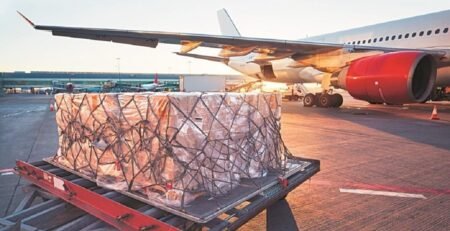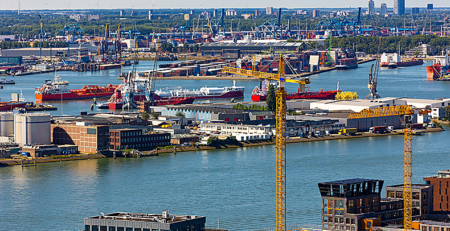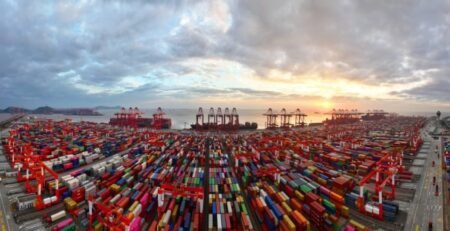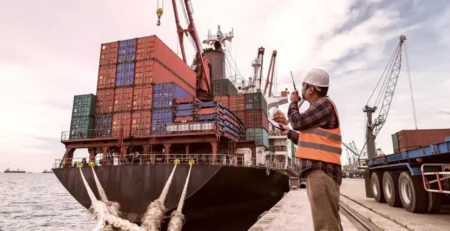UK Exporters Face Steep Decline as Trump Tariff Fears Reshape Trade Strategy

By Maria Kalamatas
London, UNITED KINGDOM —
British manufacturers are reporting their steepest drop in export orders since May 2020, as fears over a second wave of U.S. tariffs under President Donald Trump’s administration disrupt transatlantic supply chain planning.
According to the latest S&P Global/CIPS Manufacturing PMI, released on May 3, the UK’s export index fell to 45.4, marking the seventh consecutive month of contraction and the largest single-month dip since the peak of the COVID-19 pandemic.
“The sector is in a defensive crouch,” said Rob Dobson, Director at S&P Global Market Intelligence. “There’s no certainty over which goods might be targeted next, so manufacturers are stalling investment and rethinking routing.”
US, EU, and China: simultaneous contractions
The PMI report cited sharp export declines not only to the United States but also to the European Union and China, underscoring a global cooling of demand. “It’s the first time in years we’ve seen all three major markets pull back in sync,” Dobson added.
For companies like Wexford Components Ltd., which manufactures precision parts for aerospace suppliers, the environment is especially punishing. “We’ve postponed two major shipments to Dallas and Munich,” said CEO Siobhan Patel. “Our buyers are asking for renegotiated terms or are shifting to U.S.-based vendors.”
Government caught between policy and politics
The UK government has pledged to “support exporters through policy stability,” yet has not ruled out retaliation if new U.S. tariffs hit automotive or medical device exports.
Trade Minister Kemi Badenoch acknowledged the challenge: “We’re walking a tightrope between maintaining our U.S. relationship and protecting domestic industries. Dialogue is ongoing, but so is damage.”
Ports and logistics partners brace for rerouting
Freight forwarders are already reacting. Several large clients have rerouted cargo away from Atlantic shipping routes in favor of Euro-Asia rail corridors, despite the longer transit times and border risks.
“There’s less volatility on the Iron Silk Road right now than through the Port of New York,” said Lianne Cooke, a senior logistics analyst at TransBridge UK.
2025: a year of hedging, not scaling
For UK exporters, the tone of the year is one of survival over scale. As Patel put it, “This isn’t about growing. It’s about getting your goods where they’re wanted—before policy decides they’re not.”
The post UK Exporters Face Steep Decline as Trump Tariff Fears Reshape Trade Strategy appeared first on The Logistic News.
Share this post
Related
Posts
Surge in Asian Air Cargo Forces Airlines to Reprioritize Global Routes
By Maria Kalamatas | July 10, 2025 Bangkok, July 10 — In a move that underscores the pressure on global air...
Asia-Europe Freight Rates Surge Again as Port Congestion Hits Peak
SINGAPORE / 9 JULY 2025 — Shipping rates between Asia and Northern Europe have surged once again this week, reaching...
Shanghai Surges Ahead as Global Shipping Recalibrates
Shanghai, China — 10 July 2025In a month marked by global route upheavals and capacity shifts, the Port of Shanghai...
Argentina, Brazil, and Mexico Fast-Track Regional Freight Agreements
BUENOS AIRES — July 4, 2025Faced with weeks of delayed cargo and unstable ocean routes, Latin America’s biggest economies are...





